Years ago, a client taught me a valuable lesson: of all the moments that matter, some of the most memorable ones are created while sharing meals.
This lesson came to life recently as we wrapped up our support for pre- and post-acquisition integration efforts. When you are deeply embedded within multiple lines of business, you become a vital extension of the client’s team—and you want to honor a meaningful relationship and the value you created together.
TiER1 hosted a happy hour for everyone to come together, share in each other’s successes, and celebrate our hard work. As a special surprise, we also donated to a local charitable organization on behalf of each person on the client’s team. It was a wonderful moment that really mattered to the team.
Moments matter to people.
Organizations are constantly evolving, and each organizational change sends ripple effects throughout the workplace. These ripples can be seen through thousands of small changes in people as they do their best to adapt and evolve in their new environment.
To help their people, leaders articulate and refine big concepts, such as vision statements, organizational values, operational principles, and cultural characteristics. Yet, these important concepts don’t mean anything unless they are deeply understood and embedded in the hearts and minds of people.
Employees bring to life the organization’s strategies and vision statements through daily actions and interactions. The through line of work is a series of moments that matter: meaningful experiences that help people as individuals and as teams to reinforce concepts, deepen connections, and even learn new behaviors.
We asked TiER1ers to share their stories of moments that matter in activating strategy through people. Here are some of our favorites.
Cultural alignment
Laura Hoppa and Kris Henninger: Our client wanted every employee to feel ownership of their company’s existing values. The size of the organization allowed us to do something a little unconventional: we invited employees to share how they felt about each value, with the promise that their feedback would be taken all the way to the top.
In a series of workshops, each with approximately 20 employees, we reviewed the company’s seven values and asked everyone to share:
- Where do you see this value in action at the company?
- When are you awesome at doing this?
- What does this word mean to you?
- How could you live this value more fully?
- How could our company do better at living out this value?
As employees shared with their peers, everyone aligned to a shared vision of what the values could mean. Throughout each workshop, we kept a running list of themes, repeated insights, and potential organizational blockers to the values. That list was provided to senior leaders of the organization, and employees were invited to join the conversation to provide more insight.
These workshops facilitated numerous meaningful moments for employees to come together as a team, amplify positive habits, address negative ones, and discuss their values. (Love this idea? Hear more from Laura on employee engagement.)
Organizational change
Molly Winter: Time and again on projects, I’ve seen that change is perceived as meaningful if people believe that the change is leading them to something better, that the effort is worth it, and that the gains outweigh what might be lost.
To create meaningful moments, engage people in a dialogue around not just the change itself, but the reasons behind the change. Help individuals craft more meaning by inviting them to share personal experiences as well as feedback with this change or previous changes. Then, be transparent in how decisions will be made and how their feedback will matter throughout the change.
Also, make space for others to get involved and help lead the change as sponsors, champions, or pilot users. This builds trust and gives individuals purpose, handing back some of the control they may feel they have lost in the process of evolving and adapting to new ways of working. Including others also builds community, which is key to promoting a positive experience for those going through large-scale change.
Finally, don’t forget to celebrate achievements together! Recognize individuals and groups not only for their achievements but also for demonstrating desired behaviors, such as providing feedback, contributing, and giving support.
Performance management
Mike Divine: When we’re trying to change people’s mindsets and actions or help them learn new behaviors, I’ve found that what matters most is the stories that people tell themselves. If we can guide and influence those stories, then we can change how they think about their role and their value within the organization.
For example, a software development company recently refreshed their corporate values to include agility. But, their performance management process was too traditional and static to drive their strategy of continuous improvement. They wanted teams to facilitate more conversations around individual and collective performance—not just an annual performance review between managers and their direct reports, but regular feedback from teammates and peers as well.
Their approach to getting everyone on board with the new process? Rather than putting everyone in a single training event to “roll out the change,” they knew going in that it would be more effective to craft multiple, small moments along the journey that allowed people to try out new behaviors.
Changing those stories happens in small, meaningful moments over time—and we can (and should) construct those moments intentionally with the right story in mind. (Read more from Mike on how to create training that people actually want to take.)
People & relationships
Dustin Shell on caring conversations. The kind of conversation you offer with a team member who is struggling to perform will look and feel very differently if that team member is struggling with a personal issue. I supported two clients in figuring out how they can help their people step into better conversations during pivotal moments; getting those moments right allows everyone to achieve their goals.
Zac Ryland on building trust. There will always be those moments in a project where the unaccounted for happens. (Maybe it’s a new opportunity or perspective that we didn’t have before; maybe it’s a roadblock.) How we handle that need for flexibility makes all the difference going forward. It’s a big moment where trust can be formed or broken.
Grant Simmons on maintaining connections. The methodology and processes we follow will create lots of moments that really matter for clients, because it’s about the connection points between our team and theirs throughout the project.
Staffing a project is a powerful moment; we’re putting together the right team for the job, and the work depends on the team we staff. Project kickoff is another moment that matters, because it aligns everyone’s expectations for what the work is and how it will get done. Checking in throughout the project matters, as does holding a “lessons learned” meeting with the team at the end of the work effort.
Moments that matter in strategy activation
They may seem like small moments, but over time, as your people experience these moments that matter, they can add up to something powerful: shared convictions, meaningful connections, and new habits.
If you’d like to connect with our team to learn more about moments that matter, give us a call at 859-415-1000 or reach out through the form below.




